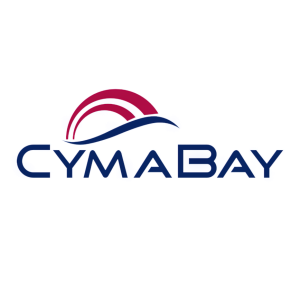CymaBay Announces Publication of Two-year Safety and Efficacy Results of Seladelpar in Patients with Primary Biliary Cholangitis
NEWARK, Calif., Nov. 01, 2023 (GLOBE NEWSWIRE) -- CymaBay Therapeutics, Inc. (NASDAQ: CBAY), a biopharmaceutical company focused on innovative therapies for patients with liver and other chronic diseases, today announced that two-year safety and efficacy results of seladelpar for primary biliary cholangitis (PBC) have been published in Alimentary Pharmacology & Therapeutics:
Open-label, clinical trial extension: Two-year safety and efficacy results of seladelpar in patients with primary biliary cholangitis
by Mayo, MJ; Vierling, JM; Bowlus, CL; Levy, C; Hirschfield, G; Neff, GW; et al.1 in Alimentary Pharmacology & Therapeutics (2023), doi: 10.1111/apt.17755
This open-label, international, long-term extension study, evaluated the efficacy and safety of seladelpar a potent, selective, orally active PPARδ agonist, or delpar, through 2 years of treatment in patients with PBC. Patients with PBC were eligible to enroll in this long-term extension study if they had successfully completed a prior study of seladelpar. Adults from the lead-in studies had enrolled having a diagnosis of PBC after persistent elevation in the cholestatic marker alkaline phosphatase despite current or prior treatment with first-line ursodeoxycholic acid. The objectives were to evaluate the long-term safety, tolerability, and efficacy of seladelpar at 5 mg and 10 mg once daily throughout 2-years. A composite of alkaline phosphatase and bilirubin previously accepted for regulatory approval served as an endpoint. The composite was achieved by
Lead investigator Marlyn J. Mayo, MD, Professor and Liver Disease Specialist, University of Texas Southwestern Medical Center commented, “These results build upon the positive findings from the pivotal Phase 3 trials of seladelpar in patients with primary biliary cholangitis and further support the long-term durable efficacy, safety, and tolerability of seladelpar, with continued improvement over the course of 2-years.”
1The full list of authors is Mayo, MJ; Vierling, JM; Bowlus, CL; Levy, C; Hirschfield, GM; Neff, GW; Galambos,, MR; Gordon, SC; Borg, BB; Harrison, SA; Thuluvath, PJ; Goel, Aparna; Shiffman, ML; Swain, MG; Jones DEJ; Trivedi, PJ; Kremer, AE; Aspinall, RJ; Sheridan, DA; Dörffel, Y; Yang, K; Choi, YJ; McWherter, CA.
About PBC
PBC is a rare, chronic inflammatory liver disease primarily affecting women (1 in 1,000 women over the age of 40 or about 130,000 total people in the US). PBC is characterized by impaired bile flow (known as cholestasis) and the accumulation of toxic bile acids in the liver, leading to inflammation and destruction of the bile ducts within the liver and causing increased levels of ALP and total bilirubin. The most common early symptoms of PBC are pruritus (itching) and fatigue, which can be debilitating for some patients. Progression of PBC is associated with an increased risk of liver-related mortality.
About Seladelpar
Seladelpar, an investigational treatment for people with PBC, is a first-in-class oral, selective peroxisome proliferator-activated receptor (PPAR) delta agonist, or delpar, shown to regulate critical metabolic and liver disease pathways in indications with high unmet medical need. Preclinical and clinical data support its ability to regulate genes involved in bile acid synthesis, inflammation, fibrosis and lipid metabolism, storage, and transport.
About CymaBay
CymaBay Therapeutics, Inc. is a clinical-stage biopharmaceutical company focused on improving the lives of people with liver and other chronic diseases that have high unmet medical need through a pipeline of innovative therapies. Our deep understanding of the underlying mechanisms of liver inflammation and fibrosis, and the unique targets that play a role in their progression, have helped us receive breakthrough therapy designation (U.S. Food and Drug Administration), Priority Medicines status (European Medicines Agency) and orphan drug status (U.S. and Europe) for seladelpar, a first-in-class investigational treatment for people with PBC. Our evidence-based decision-making and commitment to the highest quality standards reflect our relentless dedication to the people, families, and communities we serve. To learn more, visit www.cymabay.com and follow us on X (formerly Twitter) and LinkedIn.
Cautionary Statements
Any statements made in this press release regarding the potential for seladelpar to treat PBC and potentially improve clinical symptoms or outcomes of the disease, the potential benefits to patients and the future filing and commercialization plans of CymaBay are forward-looking statements that are subject to risks and uncertainties. Actual results and the timing of events regarding the further development of seladelpar could differ materially from those anticipated in such forward-looking statements as a result of risks and uncertainties, which include, without limitation, risks related to: the success, cost and timing of any of CymaBay's product development activities, including clinical trials; and effects observed in trials to date that may not be repeated in the future. Additional risks relating to CymaBay are contained in CymaBay's filings with the Securities and Exchange Commission, including without limitation its most recent Annual Report on Form 10-K, its Quarterly Reports on Form 10-Q and other documents subsequently filed with or furnished to the Securities and Exchange Commission. CymaBay disclaims any obligation to update these forward-looking statements except as required by law.
For additional information about CymaBay visit www.cymabay.com.
Public Relations Contact:
Theresa Dolge
Evoke Kyne
(609) 915-2156
Theresa.Dolge@evokegroup.com
Investor Relations Contact:
Hans Vitzthum
LifeSci Advisors, LLC
(617) 430-7578
Hans@LifeSciAdvisors.com








